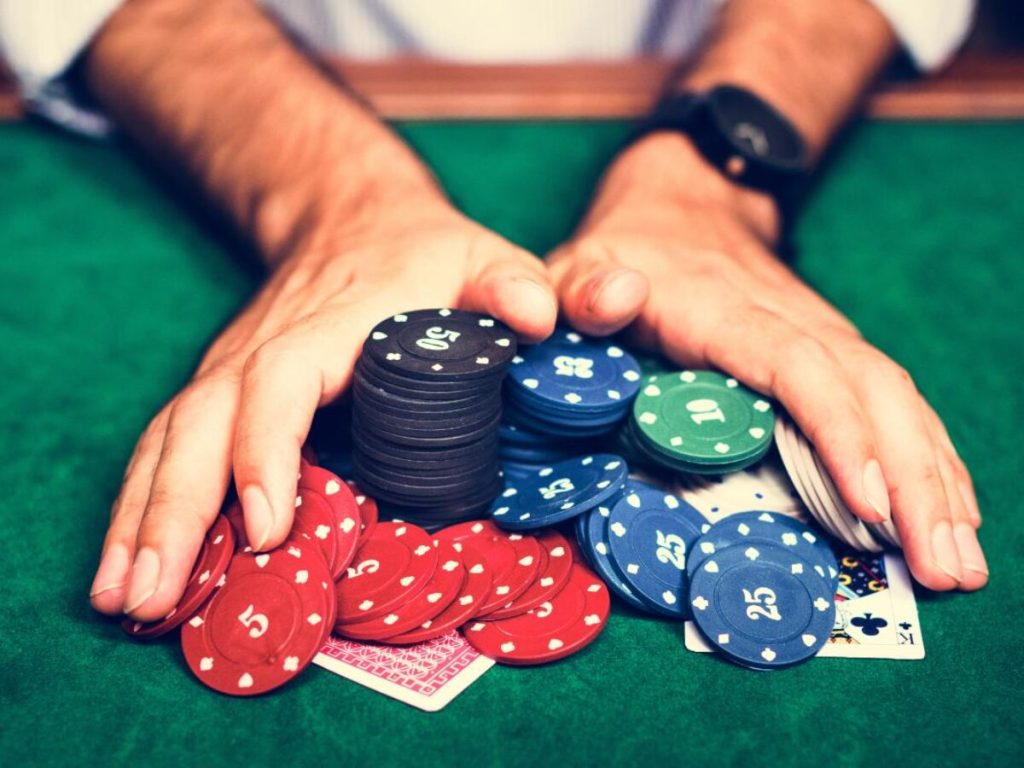
Gambling is a popular form of entertainment enjoyed by millions worldwide. For many, it remains a harmless pastime, but for some, it can spiral into an addiction that has serious consequences for both their personal and financial well-being. Gambling addiction, also known as compulsive gambling or pathological gambling, is a behavioral disorder where individuals become increasingly preoccupied with gambling activities to the point that it interferes with their daily lives. Understanding the psychology behind gambling addiction and the ways to prevent it can help reduce its prevalence and support those affected.
The Psychological Triggers of Gambling Addiction
At its core, gambling addiction is driven by a complex mix of psychological, emotional, and environmental factors. Reward-seeking behavior plays a crucial role in the development of gambling addiction. The brain’s reward system releases dopamine, a “feel-good” neurotransmitter, when a person wins a bet or even anticipates a potential win. This creates a feeling of pleasure and reinforces the behavior, making the individual want to keep gambling to experience that same rush. Over time, the brain becomes conditioned to expect that reward, leading to more frequent gambling, even if the player is not winning. This cycle can be self-reinforcing, as the desire for the “big win” becomes overwhelming.
Another significant factor is the illusion of control. Many gamblers believe that they can influence the outcome of a game, even when the odds are entirely random. This can be especially true in games like poker or blackjack, where skill is involved but luck is also a significant factor. The belief that they can “outsmart” the game, or that their chances of winning will improve through persistence, keeps gamblers returning to the casino or online gaming sites, often leading to escalating bets. This illusion of control fosters a sense of hope, encouraging individuals to chase losses and continue gambling, even when it is no longer a rational decision.
Additionally, emotional escape is a common motivator. Gambling provides an avenue for individuals to escape feelings of stress, anxiety, or depression. For some, the activity can become a coping mechanism to avoid dealing with life’s challenges or painful emotions. The excitement of gambling can momentarily distract from real-life problems, creating an unhealthy reliance on gambling as a way to “feel better.” Unfortunately, this temporary relief can evolve into a harmful pattern, as individuals use gambling to self-medicate their emotions, often leading to more significant issues in the long run.
Prevention and Intervention Strategies
Preventing gambling addiction involves a combination of education, self-awareness, and responsible gambling practices. The first step in prevention is raising awareness about the risks of gambling and the signs of addiction. Many individuals are unaware of how easily gambling can develop into an addiction, especially with the convenience of online casinos and sports betting apps. Educating players on how gambling works, the odds of winning, and the risks involved can help them approach the activity with a healthier mindset. It is important to emphasize that gambling should always be viewed as a form of entertainment, not as a way to make money.
Another critical aspect of prevention is setting limits. Many online casinos and gambling platforms offer tools that allow players to set deposit, loss, or time limits on their accounts. These features are designed to encourage responsible gambling and help players avoid going beyond their financial means. For those who gamble in physical casinos, setting a strict budget before entering the casino or having someone accompany them can be effective strategies. Moreover, gamblers should be encouraged to take regular breaks and reflect on their emotional state, ensuring that they are not using gambling as an escape from personal or emotional issues.
For individuals who recognize the early signs of gambling addiction or those already affected by it, intervention and treatment are essential. Cognitive-behavioral therapy (CBT) has proven to be an effective treatment method for gambling addiction. CBT helps individuals identify and challenge the thoughts and behaviors that drive their gambling habits. Additionally, support groups such as Gamblers Anonymous (GA) provide a community where individuals can share their experiences and learn from others in similar situations. In some cases, medication may be prescribed to help manage underlying mental health conditions, such as anxiety or depression, that may contribute to the addiction.
Conclusion: Creating a Supportive Environment for Recovery
The psychology behind gambling addiction is deeply rooted in the brain’s reward system, the illusion of control, and the emotional appeal of escape. These psychological triggers can make gambling a highly addictive activity for some individuals. However, understanding these psychological mechanisms is the first step in preventing and treating gambling addiction. By raising awareness, setting responsible gambling limits, and encouraging early intervention, we can reduce the risk of addiction and ensure that gambling remains a healthy form of entertainment for those who choose to partake.
For those already affected by gambling addiction, it’s important to know that recovery is possible. With the right support systems in place, such as therapy, support groups, and self-exclusion programs, individuals can regain control over their lives and learn to manage their relationship with gambling. By creating a supportive environment for both prevention and recovery, we can mitigate the harms of gambling addiction and help individuals lead healthier, more balanced lives. If you or someone you know is struggling with gambling addiction, consider seeking help from a professional counselor or a support group. For more information on responsible gambling practices, visit this guide to gambling addiction prevention.
Join KKClub.pk Today and Claim Your Exclusive Welcome Bonus!
